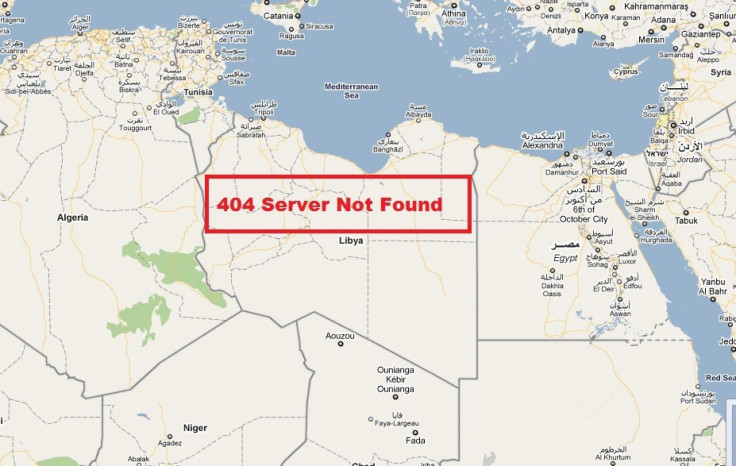Libyan Internet Shows Signs Of Life

Isolated spikes of Internet activity showed up in Libya over the weekend, according to Google's Transparency Report, but it is intermittent as Libya is still largely cut off from the rest of the world.
At about noon Eastern Time on Thursday Internet traffic coming in and out of Libya dropped to nearly zero, where it remained for the weekend, according to Google.
But a look at the Transparency Report today showed that YouTube traffic spiked in the early hours of Sunday (Eastern) and dropped again, corresponding to between 7 and 8:30 a.m. in Libya. Gmail traffic also showed an uptick over the weekend, before falling to its previous near-zero level, and Google's search traffic showed similar isolated spikes. The traffic to Google's Blogger service also showed some increase in activity over the weekend, though it was uneven and still far below normal levels.
Data from Arbor Networks, an Internet security company, shows no traffic coming in or out of Libya after Thursday evening in Libya.
Libya had previously lost much of its connectivity on Feb. 18. The country's Internet activity returned at about 1 a.m. Eastern time on Feb. 19 after being out for about seven hours. Initially some analysts thought it might be the Libyan government attempting a dry run of cutting off the Internet and other communications the way the Egyptian government did in January.
James Cowie, chief technology officer of Renesys, an information technology consultancy, said the Libyan government's strategy is different from that used in Egypt, or even the previous service outages.
In Egypt, the government simply told the Internet service providers to shut the servers down. Technically, it was not very sophisticated. If a computer from another country tried to ping a server in Egypt, there was simply no answer.
The servers in Libya are answering, in the sense that the route is clear and open. But there is no traffic. If one tries to send a data packet from Libya to the U.S. (or anywhere else) the server in Libya sends it to a black hole route, Cowie said. That means it would be held in place. The sender might never know what happened, except insofar as there was no answer.
What the Libyan telecoms operator is doing is not dissimilar to the throttling of traffic that happens on any network when users exceed their data limits. The data is either slowed down or the subscriber gets charged more money. In this case the throttling was simply set at zero.
But now there are some servers answering. Battles have spread across the country, with forces loyal to the country's longtime dictator, Muammar Gaddafi, fighting for control of the major oil ports along the coast. The rebel forces so far control the cities of Benghazi, Ajdabiya, Ras Lanuf and Misrata, while the capitol, Tripoli, and the city of Sirte remain in the hands of Gaddafi's loyalists.
The unrest in North Africa and the Arabian Peninsula has focused attention on the Internet as an arena of conflict, as new communications technologies, including mobile phones and satellite television, have become more ubiquitous in the developing world.
To contact the reporter responsible for this story call (646) 461 6917 or email j.emspak@ibtimes.com.
© Copyright IBTimes 2024. All rights reserved.





















